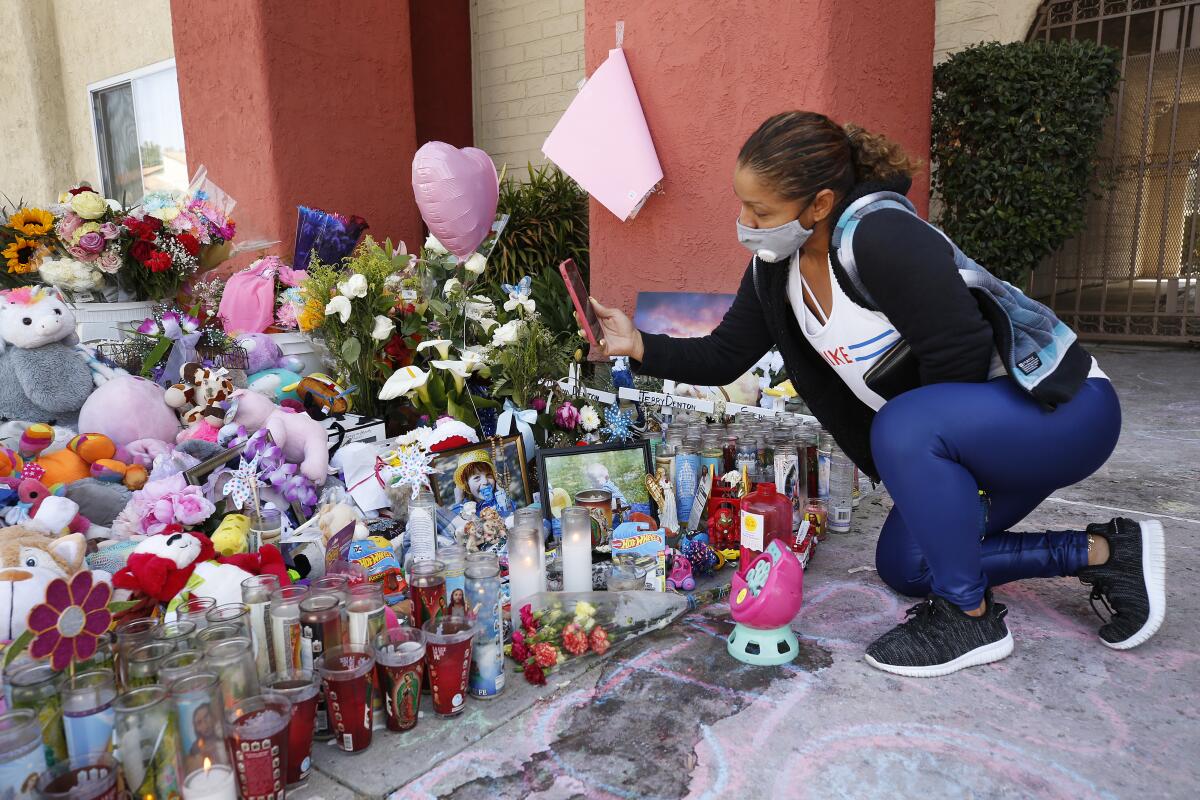Letters to the Editor: Better maternal mental-health care could have saved Liliana Carrillo’s children

- Share via
To the editor: The tragic deaths of Liliana Carrillo’s three children were entirely preventable. Each of her numerous interactions with Los Angeles County departments and agencies provided an opportunity to offer the mother help. Catastrophically, each opportunity was missed. (“Mother unraveled in depression, QAnon-style conspiracies in months before she killed 3 kids,” April 17)
As a group of mental health professionals advocating for improved recognition and response to perinatal mental health disorders, we emphatically recommend that the Los Angeles County Board of Supervisors mandate in-depth training on perinatal mental health disorders for all county agencies and employees.
Postpartum psychosis is an extremely rare and life-threatening medical emergency, occurring in only 0.1%-0.2% of births. Four percent of women who experience it kill their children as a result of their delusions. Perinatal mental health disorders — which include postpartum psychosis as well as more common and separate diagnoses such as depression — are the most common complication of childbirth. According to the 2016 Los Angeles Mommy and Baby Survey, 1 out of 4 new mothers in L.A. reported symptoms of depression.
Training should not be limited to mental health professionals only, as most affected individuals do not seek immediate care. They often, however, have numerous interactions with other county agencies, and there should be no restrictions on which county employees learn to detect and appropriately respond to perinatal mental health concerns.
The Board of Supervisors should make perinatal mental health treatment a priority by providing coordinated oversight and adequate funding for county agencies to develop and implement appropriate, high-quality, easily accessible and culturally appropriate care. There should be no “wrong door” for new mothers and young families to obtain help.
Kelly O’Connor Kay, Los Angeles
The writer is executive director of Maternal Mental Health Now.
..
To the editor: The article about Carrillo killing her three children broke my heart. Why do we have such a hard time delivering mental health services to people who clearly need them? Would this story have ended differently if we had different laws or a more accessible healthcare system?
My family is struggling with a loved one who clearly needs help but is delusional. They have written letters to various family members stating that they are waiting for one of us to die and the others to be in prison. Interestingly, sex trafficking is a theme in this person’s delusion as well.
Right now, this person poses no immediate danger to themselves or others, except perhaps the family member who the mentally ill person wants to see dead. The ill person continues to “unravel,” and everyone’s hands are tied until something terrible happens.
Just like people who have an advance directive for medical treatment when they can no longer make decisions, people with mental illness need to have a psychiatric advance directive so their doctors and loved ones can help them get back to a functioning state before they are wandering the streets.
Finally, if we had a single-payer universal healthcare system, perhaps low-income folks would have better access to mental healthcare.
C.E. Mone, Trinidad, Calif.
..
To the editor: I was a student at Budlong Avenue Elementary School in Los Angeles in April 1940 when my 6-year-old classmate Deborah Ann Davis was killed by her mother. Two of her siblings were also killed, and one was injured but lived. Her mother took her own life.
In my mind, I still see Deborah standing by her desk in our classroom. It is an image that has never left me. I remember our teacher and how much pain she was when in she told us, through tears, that Deborah was dead.
Eighty-one years later, the pain remains.
Robert P. Branch, Upland
More to Read
A cure for the common opinion
Get thought-provoking perspectives with our weekly newsletter.
You may occasionally receive promotional content from the Los Angeles Times.









